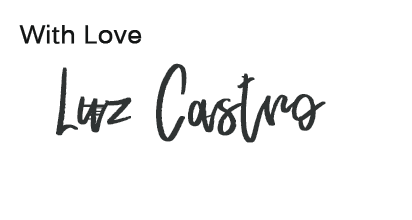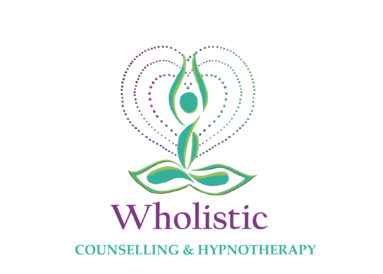Posted 11 November 2021,
8min read
CHRONIC PAIN
5 ways to Manage Your Mental Mealth And Wellbeing

Even though I had worked with numerous clients who suffered from chronic pain, looking back now I think I didn’t not fully understood the impact this had on their mental health and quality of life until I went through a long period of physical pain and health issues myself.
Fortunately I do not suffer from chronic pain, and after around a year I was able to heal myself with the help of health professionals. But this experience was long enough to increase my awareness and understanding on how it can impact all areas of our life from relationships, professional, finances, mental health and wellbeing among others.
When every day or most of the days feels like a struggle is really hard to get one motivated to do anything, and we can easily fall in to a downward spiral of self-pity, victimisation, frustration and down right misery.
That was me for what felt like a long time during that year, and even though me being a Holistic therapist it took me a while to realise the unhelpful pattern I had fallen in.
When I reached the rock bottom and didn’t like who I was becoming, I made the decision to take back control of my life, and no longer be at the mercy of the health issues I was experiencing at the time. I took a deep look in to myself and started to think on ways to help myself improve my overall wellbeing and feel more motivated In my daily life despite my health condition.
I put together a bunch of tools that kept me motivated and feeling empowered. But this was not a straightforward journey, there were some twists, turns and drawbacks, and most of the days felt like a battle (a mental one).
Even nowadays I still have good days and bad days as i´m still in the recovering and healing process, but I have learn to be ok with it. .
If at the moment you are feeling stuck, frustrated, hopeless, with lack of motivation due to suffering from health issues or chronic pain these tools may also help you regain control of your mental health and wellbeing.
Also, I would like to add the below steps are not extensive, there were many other things I did to help myself such as improving my diet, taking supplements, finding the right health practitioner, exercising. Those are fields I am not qualified in order to provide advise, but you also can do your own research and find certified professionals if you want to go down that route.
#1 Inner Journey
I had a light bulb moment when I took time to observe my thoughts and emotions, and realised that part of me was becoming attached to the role of a sick person. Being a holistic therapist I started exploring the reasons for the unhealthy attachment, and I realised that my health issues on a unconscious level was serving my need to feel loved, and cared for. It also allowed me to be vulnerable and accept help, something that I have struggled with for great part of my life due to past experiences and childhood trauma.
Deep down I was enjoying all the attention and demonstrations of love I was getting, and part of me didn´t want to let go of that. Getting better in my subconscious mind would mean people would stop seeing me as someone who´s fragile and needs help, therefore the end of the special treatment I was getting.
After reflecting on the pros and cons I was able to consciously make the decision to let go of overly identifying myself with the sick person role, and having other people looking at me as a victim, the poor soul who needed help. I was then ready to let go of the special treatment, and all the added benefits that my health condition brought and focus on getting better.
I strongly advise everyone who´s suffering with health issues to take time to go inwards as a way to find out if you too may have become attached to any of the secondary gains from your health condition.
You can start by going in to a quiet space and allowing yourself some time to go within and ask yourself the below questions;
How do you define yourself?
Can you think of any secondary gains resulting from your health condition? e.g: not having to work, increase on the amount of government benefits, more attention or special treatment from family members, friends, and services in general.
How are these secondary gains serving you? – Think of the needs you have that are being fullfilled as a result.
Are you willing to let go of the secondary gains?
If the answer is no ask yourself why.
Answer these questions honestly by connecting with your heart, and paying attention to how you feel when you make yourself each of these questions, which thoughts comes to your mind? Let it all out, observe them and write down on a piece of paper.
#2 Gratitude is a Super Power
Once I decided to let go of the victim consciousness I started shifting the focus from all the reasons why I was so unfortunate and the things that my body was not able to do, to focus on what was actually working well such as; parts of my body that were working well, the activities I could still do, and things that were going well in my life.
Shifting our focus from our limitations when we are in pain and suffering from health issues is a big challenge because it goes against our human nature. When we feel unwell ,especially when suffering with pain for a long period of time our brain goes in to distress also known as a fight or flight mode or hyper vigilant mode. The brain then starts to constantly look for possible threats, not only within our physical health but also in our outer world, and that´s how negative thinking starts as well as the constant focus on everything that´s going wrong.
In this state we can easily go on a downward spiral of victimisation, depression, frustration, anxiety and overall misery which obviously does not help us at all and just makes our condition worst .
That´s why is so important to practice gratitude. It help us keep perspective and appreciate the little things in life.
The easiest way is to start with something small, such as bringing your attention to the parts of your body that are working well, for e.g acknowledging them by telling yourself : I’m grateful that even though I have a pain in my knee my hands work very well and I can make myself a nice cup of tea, I am grateful I´m still able to see, my heart is beating, I´m grateful I can speak, I´m grateful I can hear.
You can also thank the parts of your body that comes to your mind whilst thinking on the things that it does for you and how it makes your life better.
Focus on what´s going well not only in your physical health but also outer world, and as you keep on practicing that, it will ultimately lift your mood, and help you break the chain of incessant negative thinking, leading to improve your motivation in getting yourself healthier.
#3 Mindfulness
As mentioned previously when we suffer from continuous health issues or pain the brain can constantly activate the fight or flight mode. When on this mode cortisol and adrenaline is released in our body.
Cortisol and adrenaline hormones can be helpful but too much of it can suppress the immune system, increase anxiety levels, lead to depression, sleep issues among other health issues.
Mindfulness can help mitigate the release of those stress hormones. The mindfulness concepts that has mostly helped me is Acceptance and non-judgement and being present
Acceptance and non-judgment does not mean to be passive in face of our struggles and current circumstances, but it’s rather an internal state where we stop resisting the reality of what it is, and we are fully aware of the present reality and recognize our current struggles and limitations.
Once we accept and face the reality of what is we can then distinguish what is out of our control, from what is in our control and take action.
Acceptance is also about allowing ourselves to feel miserable when needed, there will be days when you may feel really unwell and low and no matter what you do nothing seems to help. Sometimes the best solution is to give yourself a break and allow yourself to feel whatever you are feeling at the moment, be it sadness, anger, despair, observing whatever feelings come up without judgement meaning without labeling them as good or bad.
As the saying goes “what we resist persists”, resisting difficult emotions will only cause an internal conflict and exacerbate the unwanted emotions.
Being present you probably have already heard about this other mindfulness pillar. Being present helps us to appreciate the present moment and relax. Also, when we suffer from pain is really hard to take our focus away from the pain, and mindfulness can enable us to extend our awareness and shift our focus.
Allow yourself to have moments of silent, you can either focus inwardly by observing your thoughts, emotions or sensations in the body whilst practicing acceptance and non judgement. Or outwardly by observing your surroundings as if you are seeing and experiencing things for the first time like a toddler, paying attention to the colours, shapes, textures, sounds, smells.
Breathing exercises are also a great way to help us be in the present moment whilst relaxing our body.
What is so great about mindfulness is that is so easy to incorporate in to your every day activities, such as walking, going to the grocers, washing your dishes.
If you are not convinced yet remember mindfulness helps regulate your nervous system and therefore improve your immune system!
See below my favorite guided meditation an breathing exercises videos;
Somatic Meditation For Chronic Pain – Sukie Baxter – Whole Body Revolution
#4 Share Your Burden
When we have health issues for a prolonged period of time we may get to a point where we feel like a broken record talking over and over again about our health struggles and how awful we feel. We often stop sharing how we are really feeling, for the fear of boring other people, or even worrying a loved one.
I cannot stress enough how important it is to have someone who we can freely open our hearts with and share our deepest thoughts.
There’s something extremely healing and comforting about having a witness to our pain, someone who’s compassionate and open to listen without trying to solve anything but just being present and listen to the way we feel.
In my opinion having a Therapist or a Counselor is the most efficient, because they are trained to be unbiased, and help you explore and process difficult thoughts and emotions in a safe environment.
If you are not able to afford a therapist or counselor and live in UK, there are many organisations that offer talking therapies at a discounted rates for those on a low income, and if you ask your GP they may even be able to refer you to a local service.
Alternatively if you have a special someone who you can trust and feel comfortable with you can always try and ask for their support. Remember to tell them you need them to just listen without them trying to solve anything or even provide advice if that’s what you prefer.
If for some reason all the above aren’t doable at the moment, you can always get a journal and start writing freely and see what comes up. The idea is for you to have a moment to pour your heart and soul freely and unload your mind.
#5 Love and Compassion
There are studies that concluded that people felt happier after practicing kindness or witnessing acts of kindness. Also, according to those studies nurturing feelings of Love and compassion help us to regulate blood pressure and the nervous system as well as improving our general wellbeing.
First of all we must nurture our self-Love and self-compassion, which in this context can mean to be more patient with our body, respect our limitations and nurturing ourselves by practicing self-care.
Another way to practice self-love is by using the gratitude technique mentioned above, reminding yourself of all the great things your body is still able to do, focusing on all your good qualities and skills. You can also do something nice for yourself at least once a week, such as having a nice warm bath, doing your nails, going for a walk in the nature, cooking yourself a delicious meal, give yourself some time for relaxation activities such as reading a book, yoga, painting, drawing, or even do nothing whatever is that you enjoy doing.
You can also look out for volunteer opportunities in your community, nowadays, there are a variety of volunteering roles you can do even from the comfort of your home. And if you are unable to commit with volunteering at the moment, I’m sure you may be able to think of acts of kindness you can practice from the comfort of your home in your own time such as making a loved one a cup of tea, writing a caring email or calling someone in need of comforting words or a listening ear, baking a cake to a family member or friend, the list goes on.
You will not only make someone happy but also help yoursef in shifting your focus from your health issues and pain.
If you enjoy meditating Loving Kindness meditation is a great practice in cultivating kindness and compassion towards the self, and towards others. There were studies done that concluded that people who practice Loving kindness on a regular basis had a positive impact and array of benefits, from boosting overall wellbeing, to ease feelings of depression anxiety, PTSD, chronic pain and increase empathy and social connection among others. Find a link below for a
As I mentioned in the beginning of this post there were many other things I´ve done to get myself back on track in terms of my physical health and wellbeing, but these were the 5 starter tools that were key in shifting my self-perception of being disempowered to empowered and able to appreciate life again.
I hope these tools help you on your journey as it has helped me, and I would love to hear from you on whether you can relate with my experience or if you have found any of the suggestions helpful. Also feel free to share with our community below any other tools that may have assisted you in your healing journey.


